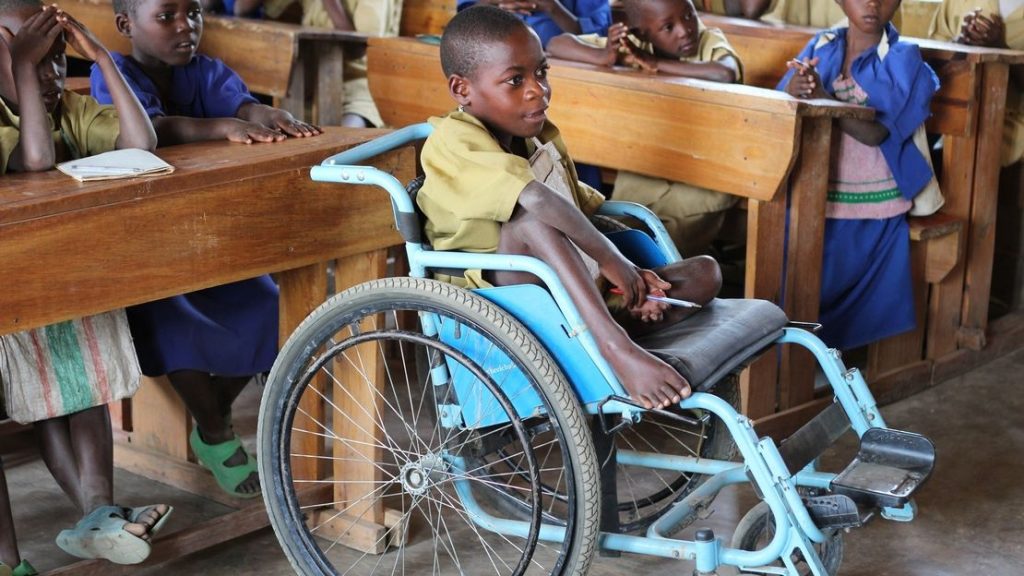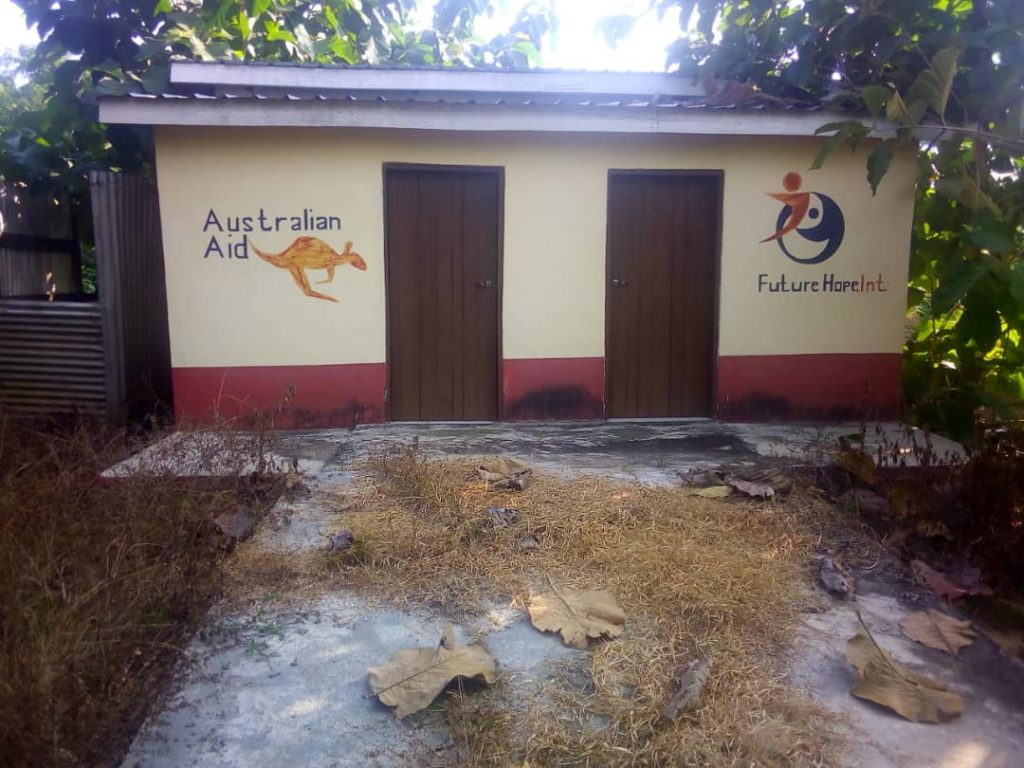Emails: futurehope2015@yahoo.com/futurehopegh@gmail.com Tel: +233 244 647 951 / +233 200 662 592
Inclusive Education
Getting all children in school and learning
Inclusive education is the most effective way to give all children a fair chance to go to school, learn and develop the skills they need to thrive.Inclusive education means all children in the same classrooms, in the same schools. It means real learning opportunities for groups who have traditionally been excluded – including children with disabilities.
To close the education gap for children with disabilities, Future Hope International (FHI) supports efforts to foster and monitor inclusive education systems

Inclusive Education
Around the world, there are 240 million children with disabilities. Children with disabilities have goals and plans for the future, just like other kids do. They require a high-quality education, just like all children, in order to grow academically and reach their full potential.
However, policymakers frequently fail to consider the needs of children with disabilities, which restricts their access to school and their capacity to engage in social, economic, and political life. These kids are among the most likely in the world to miss school. They encounter ongoing obstacles to their education because to stigma, discrimination, and the regular failure of decision-makers to include disability in educational services.
Inclusive education allows students of all backgrounds to learn and grow side by side, which is to everyone’s advantage.
But change happens gradually. Changes at all societal levels are necessary for inclusive systems.
At the school level, teachers must obtain training, facilities must be renovated, and pupils must have educational materials that are accessible. Stigma and discrimination must be combated at the community level, and people must be made aware of the advantages of inclusive education. To ensure that children receive effective care, national governments must match laws and policies with the Convention on the Rights of Persons with Disabilities. They also must routinely collect and analyze data.
FHI promotes inclusive education in a common learning environment; that is, an educational setting where students from different backgrounds and with different abilities learn together in an inclusive environment. Common learning environments are used for the majority of the students’ regular instruction hours and may include classrooms, libraries, gym, performance theatres, music rooms, cafeterias, playgrounds and the local community. A common learning environment is not a place where students with intellectual disabilities or other special needs learn in isolation from their peers.
Effective common learning environments:
- Enable each student to fully participate in the learning environment that is designed for all students and is shared with peers in the chosen educational setting;
- Provide a positive climate, promote a sense of belonging and ensure student progress toward appropriate personal, social, emotional and academic goals;
- Are responsive to individual learning needs by providing sufficient levels of support and applying student-centred teaching practices and principles.
- Common learning environment: an inclusive environment where instruction is designed to be delivered to students of mixed ability and with their peer group in the community school, while being responsive to their individual needs as a learner, and used for the majority of the students’ regular instruction hours.
FHI’s work to promote inclusive education
To close the education gap for children with disabilities, FHI supports efforts to foster and monitor inclusive education systems. Our work focuses on four key areas:
- Advocacy: FHI promotes inclusive education in discussions, high-level events and other forms of outreach geared towards policymakers and the general public.
- Awareness-raising: FHI shines a spotlight on the needs of children with disabilities by conducting research and hosting roundtables, workshops and other events for local governments.
- Capacity-building: FHI builds the capacity of education systems in local communities by training teachers, administrators and communities, and providing technical assistance to local Governments.

Strengthening Basic Education of Children with Special Needs Project
The project with financial contribution from the Australian High Commission under the Direct Aid Program supported Inclusive Education (IE) through modification, construction and renovation of school facilities such as ramps, drainage, WASH facilities, wheelchairs and crutches for CwDs in Helepke, Kordiabe and Waya all in Adaklu District of the Volta Region of Ghana
